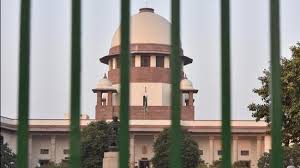High Court found PW-2’s evidence of last seen not convincing and reliable inasmuch as if on 13.12.1998 PW-2 had informed the police about his suspicion in respect of the involvement of the accused, the police would have arrested the accused forthwith and not waited till 25.12.1998. But the record indicated that the name of the accused came to light for the first time on 25.12.1998. In these circumstances, the High Court found PW-2 unreliable, as being a witness who was set up later.
The argument of the learned counsel for the appellant that since there was no proven enmity between the accused and the witnesses therefore there was no reason to disbelieve them, would not be of much help to the appellant because this is a case based on circumstantial evidence. In a case based on circumstantial evidence not only do each of the incriminating circumstances have to be proved beyond reasonable doubt but those incriminating circumstances must constitute a chain so far complete that there is no escape from the conclusion that within all human probability it is the accused who has committed the crime and further, cumulatively, they must exclude all hypotheses consistent with the innocence of the accused and inconsistent with his guilt. As we have found that the incriminating circumstances were not proved beyond reasonable doubt and otherwise also the circumstance of last seen was inconclusive, in our view, the High Court was justified in setting aside the order of conviction recorded by the Trial Court.
The argument that the accused has failed to discharge his burden under section 106 of the Evidence Act and, therefore, his conviction was justified is misconceived. Section 106 of the Evidence Act does not absolve the prosecution of discharging its primary burden of proving the prosecution case beyond reasonable doubt. It is only when the prosecution has led evidence which, if believed, will sustain a conviction, or which makes out a prima facie case, the question arises of considering facts of which the burden of proof would lie upon the accused. (See: Shivaji Chintappa Patil v. State of Maharashtra (2021) 5 SCC 626). Here, as we have discussed above, firstly, the incriminating circumstances were not proved beyond reasonable doubt and, secondly, they do not form a chain so complete from which it could be inferred with a degree of certainty that it is the accused and no one else who, within all human probability, committed the crime. In these circumstances, there was no occasion to place burden on the accused with the aid of section 106 of the Evidence Act to prove his innocence or to disclose that he parted company of the deceased before his murder.
SUPREME COURT JUDGMENT
Citation: 2023 STPL(WEB) 37 SC
STATE OF PUNJAB Vs. KEWAL KRISHAN
Criminal Appeal No. 2128 of 2014-Decided on 21-06-2023
Click to See Full Text of Judgment 2023 STPL(WEB) 37 SC







